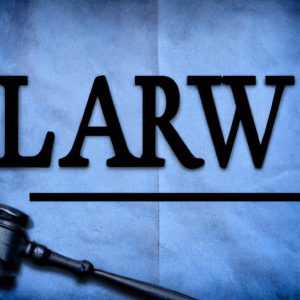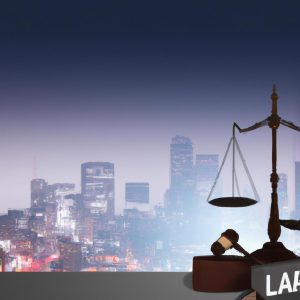In the intricate realm of estate administration, ancillary probate in New York stands as a crucial process that often accompanies the primary probate proceedings. As seasoned practitioners in the field of estate planning, our team at Morgan Legal Group understands the complexities and nuances involved in navigating this additional legal procedure. Situated in the bustling metropolis of New York City, our firm specializes in providing comprehensive services in probate, elder law, Wills, and trusts. Join us as we delve into the intricate world of ancillary probate in New York, shedding light on its significance and implications for individuals seeking to efficiently manage their loved ones’ estates.
Understanding Ancillary Probate Process in New York
Ancillary probate in New York is a legal process that occurs when a decedent owns property in multiple states, with one of those states being New York. This process is necessary to transfer the out-of-state property to the rightful heirs or beneficiaries. Understanding the ancillary probate process in New York is crucial for individuals dealing with estates that involve property located outside of the state.
During the ancillary probate process in New York, the following key steps are typically involved:
- Identifying all out-of-state property owned by the decedent
- Filing a petition with the New York Surrogate’s Court to open an ancillary probate proceeding
- Obtaining the necessary documents and court orders to transfer the out-of-state property to the heirs or beneficiaries
- Ensuring compliance with all legal requirements and deadlines
Navigating the Complexities of Ancillary Probate Administration
Ancillary probate in New York can be a complex and confusing process. When a decedent owned property in multiple states, ancillary probate may be necessary to transfer ownership of these assets. Navigating the intricacies of ancillary probate administration requires a thorough understanding of New York probate laws and procedures.
At Morgan Legal Group, our experienced attorneys specialize in guiding clients through the complexities of ancillary probate in New York. We assist clients with identifying assets that may be subject to ancillary probate, filing the necessary paperwork with the appropriate courts, and ensuring that the decedent’s wishes are carried out in a smooth and efficient manner. Let our team of experts alleviate the stress and confusion of ancillary probate administration so you can focus on honoring your loved one’s legacy.
Key Considerations for Executors Handling Ancillary Probate Matters
When handling ancillary probate matters in New York, executors must consider several key factors to ensure a smooth and efficient process. One important consideration is determining whether ancillary probate is necessary in the state where the decedent owned property. Executors should also be aware of the potential tax implications of ancillary probate, including estate taxes and inheritance taxes.
Additionally, executors should consult with an experienced probate attorney to navigate the complexities of ancillary probate in New York. Properly identifying and valuing assets, obtaining necessary court approvals, and distributing assets to the heirs are crucial steps in the probate process. Executors must also ensure compliance with state laws and regulations to prevent any delays or disputes. By carefully considering these key factors, executors can effectively navigate ancillary probate matters in New York and fulfill their duties with diligence and professionalism.
Expert Recommendations for Streamlining Ancillary Probate Proceedings
When it comes to ancillary probate proceedings in New York, there are several expert recommendations to streamline the process and ensure efficiency. One key recommendation is to work with a knowledgeable attorney who is well-versed in New York probate laws and procedures. Having the guidance of an experienced legal professional can help navigate the complexities of ancillary probate and minimize potential delays or complications.
Additionally, it is essential to gather all necessary documentation and information related to the decedent’s assets in New York. This includes titles, deeds, financial statements, and any other relevant paperwork. Organizing these documents in a systematic manner can expedite the probate process and make it easier to distribute the assets to the designated beneficiaries. By following these expert recommendations and working with a skilled attorney, you can streamline ancillary probate proceedings in New York and ensure a smooth resolution of the estate.
Q&A
Q: What is ancillary probate in New York and why is it necessary?
A: Ancillary probate in New York is the legal process that occurs when a decedent owns property in the state of New York, but their primary probate is being handled in another state. It is necessary to ensure that the decedent’s property in New York is transferred to the rightful heirs according to the laws of the state.
Q: What types of property are subject to ancillary probate in New York?
A: Any real estate or personal property owned by the decedent in the state of New York is subject to ancillary probate. This can include things like a vacation home, investment property, or valuable personal possessions located in New York.
Q: How does ancillary probate in New York differ from primary probate?
A: Ancillary probate in New York differs from primary probate in that it is a secondary probate process that is necessary when the decedent owns property in the state but is not a resident. Primary probate deals with the decedent’s primary residence and assets, while ancillary probate specifically addresses property located in New York.
Q: Are there any ways to avoid ancillary probate in New York?
A: One way to potentially avoid ancillary probate in New York is to create a trust and transfer ownership of any property located in the state to the trust. This allows the property to bypass probate and be distributed to beneficiaries according to the terms of the trust.
Q: How long does ancillary probate in New York typically take?
A: The timeline for ancillary probate in New York can vary depending on the complexity of the estate and any potential conflicts among beneficiaries. However, it generally takes several months to a year to complete the process and transfer the decedent’s property to the rightful heirs.
Future Outlook
In conclusion, navigating ancillary probate in New York can be a complex and daunting process, but with the right guidance and understanding, it is possible to successfully administer an out-of-state estate. By working closely with knowledgeable legal professionals and estate planners, individuals can ensure that their loved ones’ assets are distributed according to their wishes in a timely and efficient manner. Understanding the intricacies of ancillary probate laws in New York is crucial for anyone dealing with cross-border estates, and staying informed and prepared can make all the difference in achieving a smooth and hassle-free probate process. Let this article serve as a valuable resource for those embarking on the journey of ancillary probate in the Empire State.





